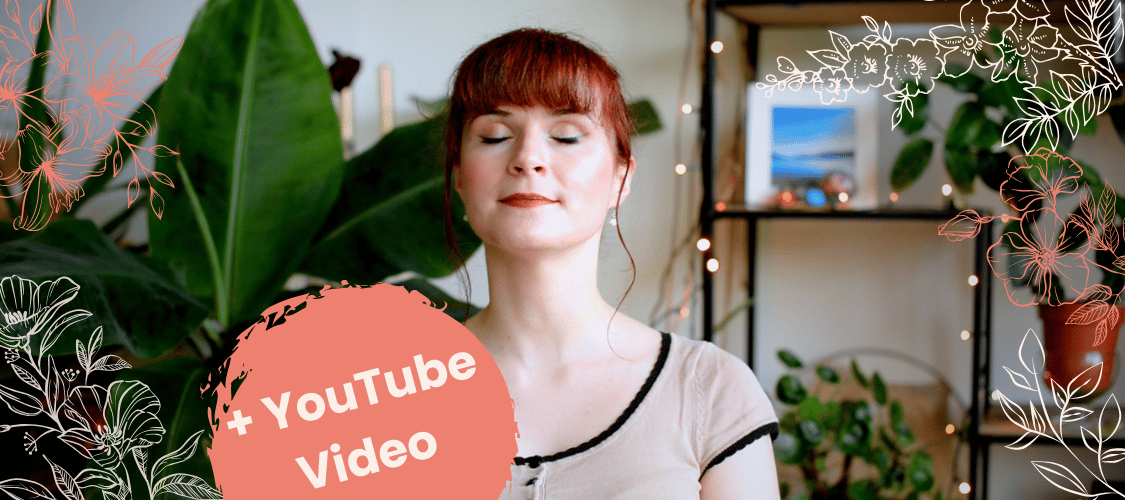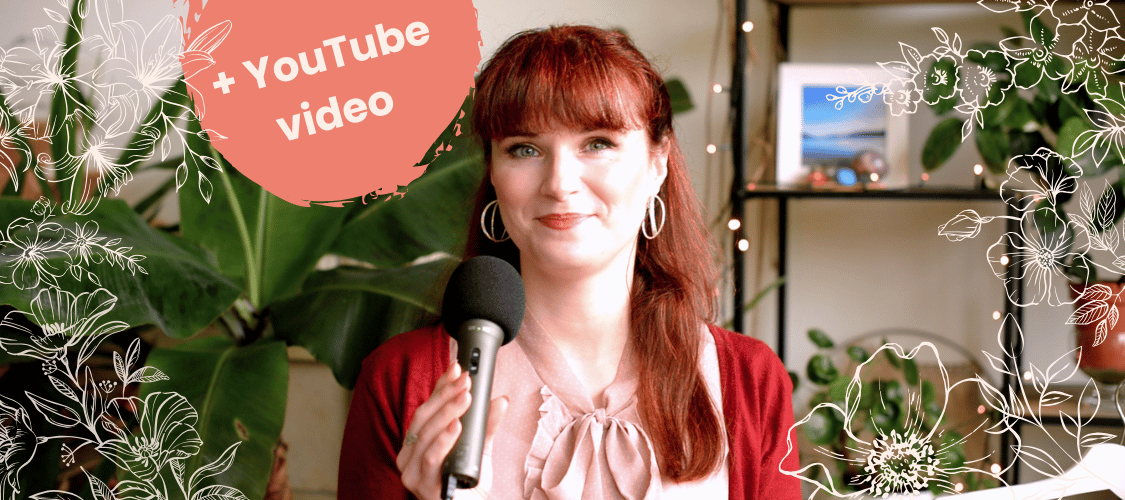“Fear makes strangers of people who would be friends”. It’s a quote by Shirley MacLaine and I find it very true. If you ever found yourself acting in a way that even you cannot recognise while in a relationship, it’s most likely because you were acting from the position of fear. Acting out of love has meaning, so let’s find out about it and its counterpart – acting out of fear and how to act from the position of love instead.
Acting Out of Love – Meaning
You have probably heard of people doing things for love and out of love, but this isn’t quite what we’re talking about here. When we take action based on feelings of consideration, trust, compassion, and understanding for the other person, we can say we are acting out of love.
Let me give you an example. Your boyfriend is going through a stressful time at work and has loads of additional responsibilities after work. Men are usually very single-focused, so when they are absorbed in one thing, they might neglect their partners.
You have two choices here. One of them is to act from a position of fear and become anxious, overthinking that maybe he doesn’t love you anymore, focusing on feeling neglected. You start to notice the negative things he does more than the positive ones. You fear being alone again and worry about rejection if you share your fears and vulnerabilities with your partner.
Acting from a position of love in this situation means focusing on yourself at this time. Your partner needs space, and you give it to him. You also share your concerns and needs with consideration and without guilt-tripping him. Your attitude remains peaceful and calm.
The Two Opposite Positions – Love and Fear
Acting out of love allows us to approach situations with an open heart and a calm mind. It doesn’t mean accepting mistreatment, but rather taking the time to grasp the perspective of others before jumping to conclusions.
Instead of immediately assigning blame or nurturing resentment, we pause, gaining a broader understanding of the situation. We are not afraid to communicate our needs and boundaries because we have an abundance mindset.
Acting out of fear means our responses become shallow and defensive. Fearing harm, we tend to react impulsively, directing our frustration both outwardly at others and inwardly at ourselves. We take a lot of things personally without considering that maybe others have their problems and challenges, too. We act like a wounded child that lives within us.
Our insecurities can get the best of us in these situations. This reactive stance prevents us from truly understanding the complexities of a situation, hindering our ability to respond thoughtfully and constructively, clouded by our emotions. We live with a mindset of scarcity.
How to Act From the Position of Love
Acting out of love, meaning confidence, abundance, and security, is especially familiar to those who are securely attached. The rest of the people, who are insecurely attached (Anxious-Preoccupied, Dismissive-Avoidant, and Fearful-Avoidant), have a bit more work to do.
Keep in mind that while you might feel healed and completely moved to the secure style of attachment (which is the goal for all of us!) while being single , it’s worth remembering that the real work starts when you enter a new relationship. Right now, these emotions and triggers are not here, which can make us believe that we are entirely healed.
We might be! However, the real emotional work starts when these triggers resurface.
Next time we need to choose how we react, here is how to prepare for it:
1. Realise Your Circle of Influence
Let go of the need to control everything and everyone. Your circle of influence in any given relationship refers to the aspects you have control over or can directly impact. It includes your thoughts, emotions, behaviours, communication, and actions within the relationship. We all have to realise that we can only influence our thoughts and behaviours, not someone else’s. You might tailor your behaviour to get a certain reaction from a person and that’s it. They may or may not react as you think. That’s where your control ends.
2. Prioritise Yourself
Fill your life with things that excite you and build your own happiness. Prioritise your self care, even if you think you have better alternatives to spend your time than a date or gathering with friends. It’s up to you and you have every right to decide. Don’t give up your plans because a boy wants to hang out. Make him wait; if he’s still there when you’re available – he has potential!
3. Give the Benefit of the Doubt
Always assume a person has good intentions and interpret their actions in a positive way. Acting out of love, meaning giving the benefit of the doubt, trusting that your partner didn’t mean to hurt you or be inconsiderate. We need to realise that everybody is dealing with their own problems and emotions internally, which they might not always share. Create a safe space instead of nagging, encouraging them to open up.
4. Communicate Your Needs
People don’t generally have a crystal ball to know what you want or need from them. Men especially need simple instructions that are direct but not too demanding. If you come on too strong, they might feel attacked and enter protection mode, closing down communication. When a good man hears your needs, he will find a way to make you feel happy and you really need to trust this. Be honest about what you need and don’t apologise for it.
5. Practice Detachment
Learn how to make your life into a scrumptious cake, where others are just a cherry on top. Master your own happiness and be the sole cause for it. Because if your baseline is being happy with yourself, not one person who comes in and out of your life can have a significant impact on how you feel long term. Detachment is an art of being committed to a person and sharing your life with them while not letting their frequent behaviour impact your overall mood. Be like a rock.
6. Be Open and Vulnerable About Your Feelings
Share your vulnerabilities if you have some concerns about how the other person’s actions made you feel, but avoid accusations. Use “I feel” statements and try to avoid the word “you”. For example, “I feel concerned about us. I feel unimportant when there’s no check-in or call for days.” If you’re a weeper like me and you tend to cry when talking about deep feelings, that’s okay! Sometimes you can ask for a break or take a few deep breaths to calm down. It gets easier over time, believe me!
7. Practice mindfulness
Risking the chance of sounding like a broken record, I will repeat that mindfulness and meditation are game changers when it comes to emotional regulation. Be present in the moment and aware of your thoughts and emotions. Mindfulness helps you respond thoughtfully rather than react impulsively out of fear. We are bombarded with information and short-form entertainment from all sides, all day long. When do we truly have space to be alone with our thoughts? When can we look into ourselves and see what’s in there and what we’re feeling? The answer lies in the title of this section. You can check out my meditations; all are linked on my blog.
8. Cultivate Gratitude
Focus on what you have rather than what you lack. Gratitude shifts your focus to positive aspects of your life, fostering a loving and content mindset. Be grateful for their time rather than expecting them to reach out more. Time is a limited resource for us all. Besides, as harsh as it sounds, nobody promised you anything, did they? They don’t owe you their time or attention, and yet they give it. So what it’s not as much as you want? Be appreciative of what you get and cherish the time spent with them. If you feel you need even more from a partner, notice if it’s not your anxious attachment speaking here.

9. Journal for Emotional Control
Pouring your emotions onto paper allows you to revisit them later and see things from a different perspective. So it’s worth trying journaling for emotional regulation and control. It’s your pocket, dirt-cheap therapist.
10. Notice Positive Things in a Person
If you’ve been unhappy with someone for a long time, you probably mostly notice their negative traits and things they do than the positive ones. This is because our brains are in a constant scanning mode, where it searches for possible dangers. Additionally, our brains strengthen neural pathways when we repeat certain actions a lot. Instead, you could make a conscious effort to start noticing positive things to create new neural connections and strengthen them to how you perceive your partner. Also, learn to let go of small, unimportant triggers.
11. Seek Support
If you find yourself in emotional turmoil, reach out for help. It’s not a shameful thing to do – it actually shows your strength. None of us is born with the perfect ability to create fulfilling relationships and control our emotions. Nobody teaches us that. Some things are better left for professionals and therapy is a great way to get help.
12. Practise Radical Acceptance
Practise radical acceptance and start loving yourself. Understand that you are unique and valuable just the way you are, recognising that everyone has strengths and weaknesses. Accept the situations as they come, because they are beyond your control and you are better off.
13. Develop Empathy
Put yourself in other people’s shoes. Try to understand their perspectives, feelings, and motivations. Empathy fosters understanding and compassion in your interactions. Cut them some slack; we all have our own struggles.
Conclusion
In this blog post we go through valuable insights into the dynamics of relationships and emotional well-being. We established what choices we have: acting out of love – meaning consideration, trust, compassion, and understanding; or out of fear and scarcity mindset. By contrasting actions rooted in love and fear, the post provides you with a clear understanding of how their emotions influence your reactions in various situations. The practical tips provided, such as practising mindfulness, setting boundaries, and prioritising self-care, offer actionable steps for fostering healthier relationships.
The inclusion of the quote “The world owes you nothing and nothing is promised to us” by Seneca adds depth to the post, emphasising the importance of accepting situations as they come and cultivating gratitude. Overall, the post serves as a comprehensive guide, hopefully empowering you to navigate relationships from a place of love, understanding, and self-awareness.
Share your commitments and ideas in the comments below!
Recommended next post to read:
WHY IT’S AMAZING TO BE SELECTIVE ABOUT A PARTNER
HOW TO NOT FEEL ALONE EVER AGAIN AND BE HAPPY









Pingback: How to Create a List of Non-Negotiables in Your Future Partner - Rise and Thrive for Women
Pingback: What To Do If a Guy Isn’t Interested in You - Rise and Thrive for Women
Pingback: Why it's amazing to be selective about a partner - Rise and Thrive for Women
Pingback: 10 Things Men Love in Women That Will Actually Improve Your Life - Rise and Thrive for Women
Pingback: How to Not Feel Alone Ever Again and be Happy - Rise and Thrive for Women
Pingback: How to positive self-talk for a successful life - Rise and Thrive for Women
Pingback: Important Lessons Learned From Past Relationships – Part 2 - Rise and Thrive for Women
Pingback: The Best Books for Emotional Control for Women - Rise and Thrive for Women